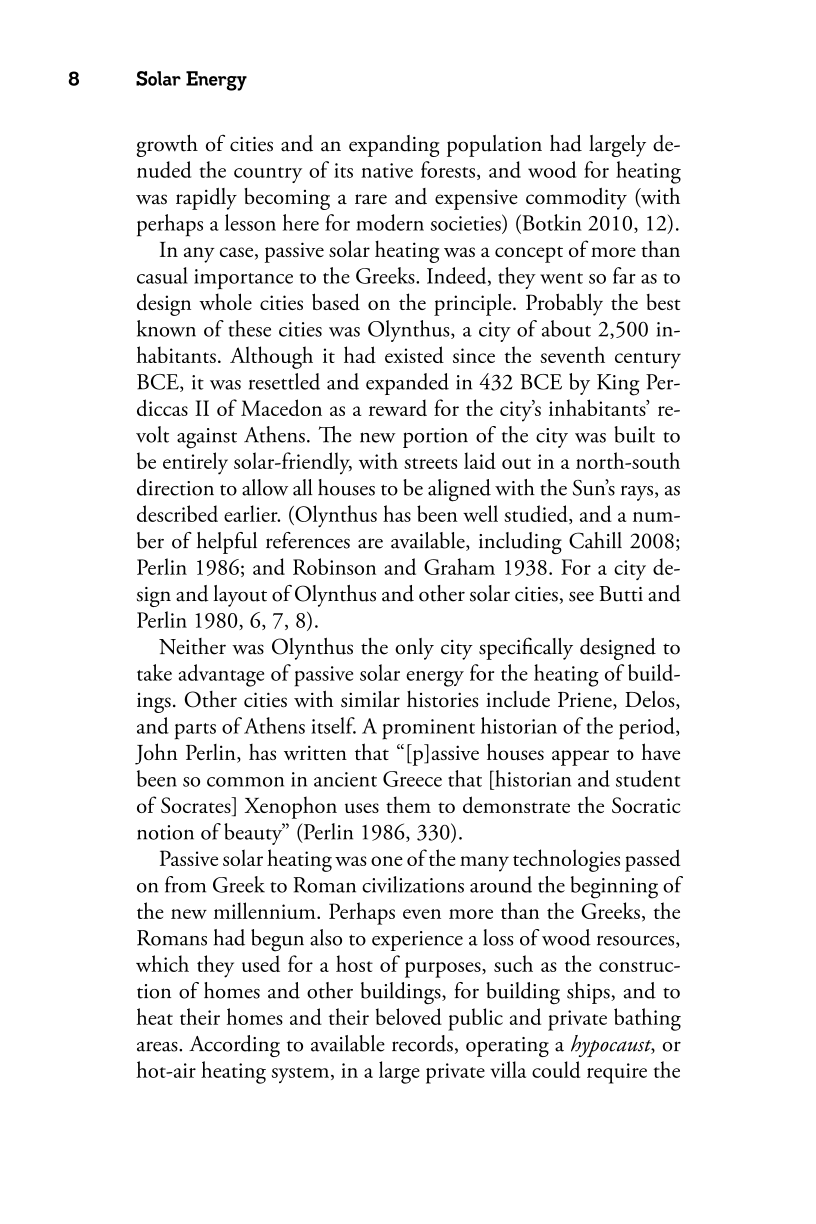8 Solar Energy
growth of cities and an expanding population had largely de-
nuded the country of its native forests, and wood for heating
was rapidly becoming a rare and expensive commodity (with
perhaps a lesson here for modern societies) (Botkin 2010, 12).
In any case, passive solar heating was a concept of more than
casual importance to the Greeks. Indeed, they went so far as to
design whole cities based on the principle. Probably the best
known of these cities was Olynthus, a city of about 2,500 in-
habitants. Although it had existed since the seventh century
BCE, it was resettled and expanded in 432 BCE by King Per-
diccas II of Macedon as a reward for the city’s inhabitants’ re-
volt against Athens. The new portion of the city was built to
be entirely solar-friendly, with streets laid out in a north-south
direction to allow all houses to be aligned with the Sun’s rays, as
described earlier. (Olynthus has been well studied, and a num-
ber of helpful references are available, including Cahill 2008;
Perlin 1986; and Robinson and Graham 1938. For a city de-
sign and layout of Olynthus and other solar cities, see Butti and
Perlin 1980, 6, 7, 8).
Neither was Olynthus the only city specifically designed to
take advantage of passive solar energy for the heating of build-
ings. Other cities with similar histories include Priene, Delos,
and parts of Athens itself. A prominent historian of the period,
John Perlin, has written that “[p]assive houses appear to have
been so common in ancient Greece that [historian and student
of Socrates] Xenophon uses them to demonstrate the Socratic
notion of beauty” (Perlin 1986, 330).
Passive solar heating was one of the many technologies passed
on from Greek to Roman civilizations around the beginning of
the new millennium. Perhaps even more than the Greeks, the
Romans had begun also to experience a loss of wood resources,
which they used for a host of purposes, such as the construc-
tion of homes and other buildings, for building ships, and to
heat their homes and their beloved public and private bathing
areas. According to available records, operating a hypocaust, or
hot-air heating system, in a large private villa could require the

























































































































































































































































































































































